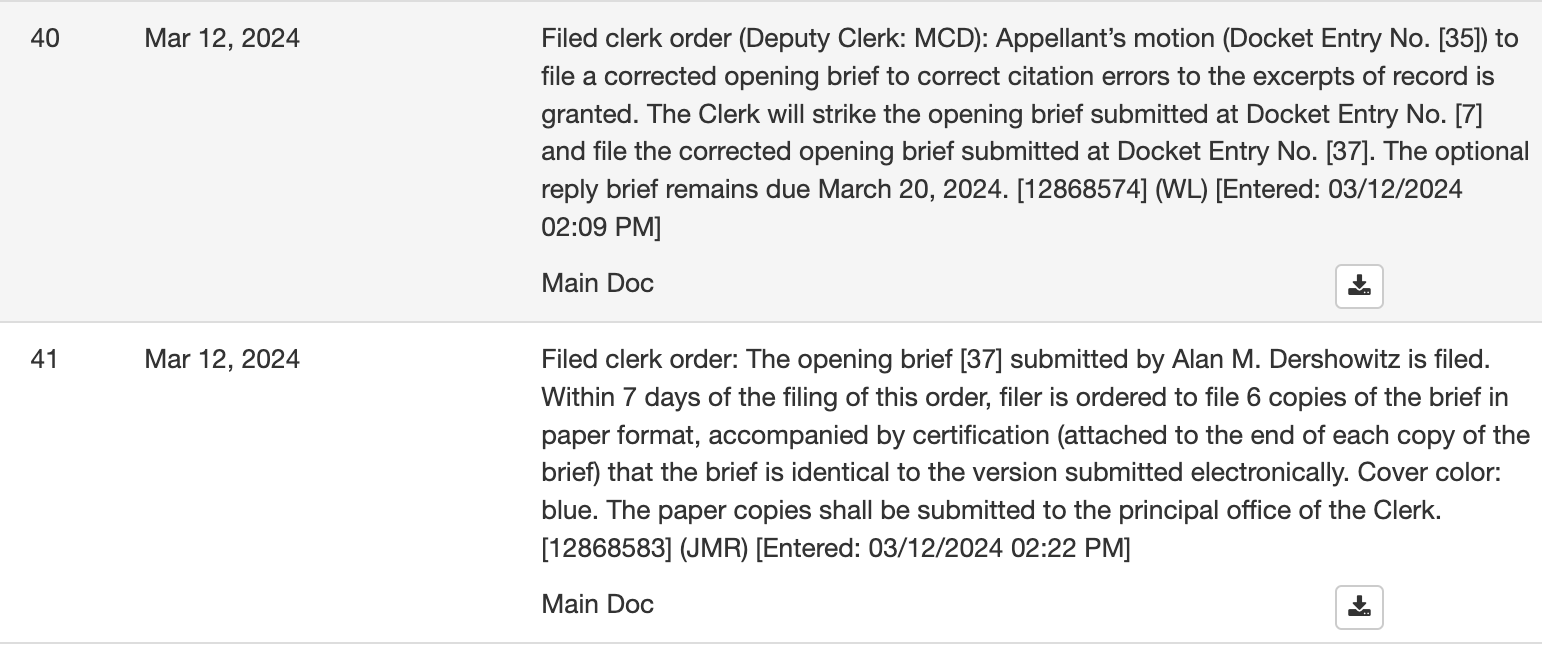
(Photo by JIM WATSON/AFP via Getty Images)
On March 5, 2022, pillow puffer Mike Lindell vowed to sue “all the machines” and get rid of electronic voting. On March 9, 2024 he promised to hand-deliver evidence to the Supreme Court “to save this country!”
And those two cases are the same case.

GCs And Outside Counsel: Here’s Your Chance To Rate The Other Side!
We are looking for insights from both private practice law firms and the clients they serve.
Mike Lindell announces a class action lawsuit against “all machines” pic.twitter.com/ZokLXQhNuN
— Acyn (@Acyn) March 5, 2022
Here at ATL, we have devoted many pixels to this Lindell-subsidized LOLsuit thanks to the involvement of one Alan M. Dershowitz, who managed to get himself sanctioned along with the rest of the lawyers involved in this ridiculous exercise. Judge John Tuchi was unmoved by Dersh’s plea that he was simply “of counsel” and/or too old and sick to be sanctioned. The court was also unpersuaded by the professor’s offer to draft a law review article explaining why sanctions should not apply.
The fun appears to be continuing at the 9th Circuit.

How You Can Take Control Of Your Firm’s Financial Future
Roadblocks to data-driven business management are falling, and a better bottom line awaits.

The case was filed in spring of 2022 in Arizona by gubernatorial candidate Kari Lake and secretary of state candidate Mark Finchem, who purported to be seeking a judicial order mandating that the state use paper ballots for the upcoming election. In reality Arizona has done exactly that for years, and they’ve now wandered off to make a pointless argument about standing.
In his dismissal, Judge Tuchi noted that this would have been immediately apparent had the plaintiffs’ counsel bothered to conduct “the factual and legal pre-filing inquiry that the circumstances of this case reasonably permitted and required.” The trial court imposed sanctions on the lawyers, and the 9th Circuit has shown no interest in sticking their noses in this particular cow pie.
But fear not, kids, because Mike Lindell is bringin’ it to SCOTUS (again!) with a petition for certiorari that will make elections great again.
The argument is that, in light of Bush v. Gore, the Supreme Court inadvertently made it too difficult to mount election challenges by restricting both standing and the window for relief.
Institutional inertia from having intervened in the 2000 election should not sideline this Court’s review of new systemic flaws in our elections. Indeed, the Court’s recent decisions have created a “Goldilocks problem’” that only this Court can resolve. On the too-cold side, Lance v. Coffman, 549 U.S. 437 (2007), has come to stand for the proposition voters cannot assert claims under the Elections and Electors Clauses. On the too-hot side, Purcell v. Gonzalez, 549 U.S. 1 (2006), posits that election-law challenges brought by candidates—once the candidates are known—come too close to elections. Cases are never “just right” for voters or candidates to challenge the wholesale bombardment of States’ election-integrity laws or practices that decide close elections.
That is a very generous interpretation of SCOTUS’s use of Purcell, but perhaps the justices will be more open to Lake’s proposed solution, which is that they should engage in a massive power grab and rewrite state election laws wholesale.
First, the Court should summarily reverse here, while limiting Lance to its actual holding.
Second, as part of implementing Moore v. Harper, 143 S.Ct. 2065 (2023), the Court should commit to taking on an error-correcting role for justiciability in election challenges, at least until lower courts understand what Article III covers and what it does not cover.
You can never go wrong telling the Roberts court to arrogate power to itself, right?
As for the “new” evidence, it appears to amount to the same nonsense rejected by the trial court. Lake repeats the claim that Maricopa County broke the law by using uncertified equipment, despite this being thoroughly debunked by Judge Tuchi. She also cites Curling v. Raffensperger, a case ongoing in Georgia, as proof that ballot marking devices are prone to tampering. In fact, Arizona only uses BMDs for visually impaired voters, and even those generate a backup paper ballot.
In short, this seems highly unlikely to result in nationwide hand-counted elections — which is a good thing, since the plaintiffs’ “proof of concept” is the Arizona “audit” which took six whole months. But the petition did give Lindell another vehicle to fundraise, so let’s call it a win.
Lindell says he’s about to file his new evidence with SCOTUS that will shock the world but he has spent $40 million on this and he’s out of money so he needs people to donate all the money they can because he 95% of the way to winning everything. pic.twitter.com/fRpJV1Wbb5
— Ron Filipkowski (@RonFilipkowski) March 14, 2024
Lake v. Fontes [District Docket via Court Listener]
Lake v. Fontes [Circuit Docket via Court Listener]
Lake v. Fontes [SCOTUS Docket]
Liz Dye lives in Baltimore where she produces the Law and Chaos substack and podcast.